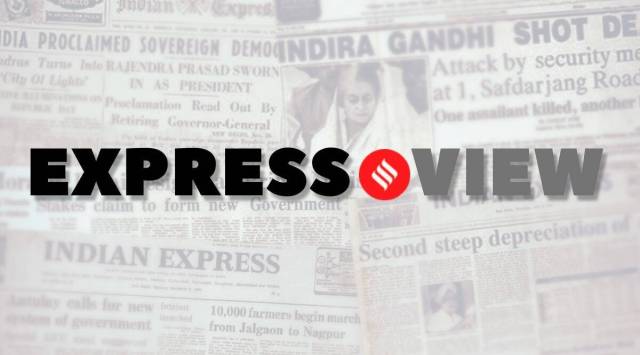
It took a horrific video of at least two women from the Kuki-Zomi community being paraded naked and sexually assaulted by a mob in Manipur for Prime Minister Narendra Modi to break his silence on the nearly three-month long ethnic violence in the state. On Thursday, PM Modi said “The Manipur incident is shameful for any civilised nation. The entire country has been shamed” and promised that the guilty would not be spared. The PM’s strong words will now be tested by the action taken on the ground. And Chief Justice of India, D Y Chandrachud, expressed “deep concern” and said that “it’s time that the government really steps in and takes action because this is simply unacceptable”. Calling the incident “the grossest of constitutional and human rights violations”, the CJI also said “we will take action if nothing is happening on the ground”. The apex court’s expression of anguish and outrage is welcome.
In his remarks, CJI Chandrachud also said that “using women as an instrument in an area of communal strife for inflicting gender violence is deeply, deeply, disturbing…”. It is well-documented that women bear the brunt of violence during communal and ethnic riots and that the perpetrators are rarely brought to justice. In Manipur, violence against women has been a particularly resonant issue ever since the remarkable grass roots movement for civil rights, Meira Paibi, in the 1970s. It was that radical protest by 12 Manipuri women, who stripped and stood in protest at the Kangla Fort in Imphal, that forced the administration to address human rights violations by the state forces during the peak of the insurgency. Irom Chanu Sharmila’s 16-year-long hunger strike for the repeal of AFSPA contributed towards changing the discourse on insurgency in the state. Yet, even though women have led the political discourse on rights, they continue to be prime targets for mobs in times of strife. Peace in Manipur will require the slow and arduous building of a new political imagination that is spacious and sensitive to the rights of women and all ethnic groups. For that to happen, the government needs to win public trust, to signal that it is on the side of the law, not the accused. And that in these divided times, the only side it will take will be of the Constitution. For this process to begin, first the Chief Minister must go. He doesn’t inspire confidence, he suggests only complicity and incompetence.